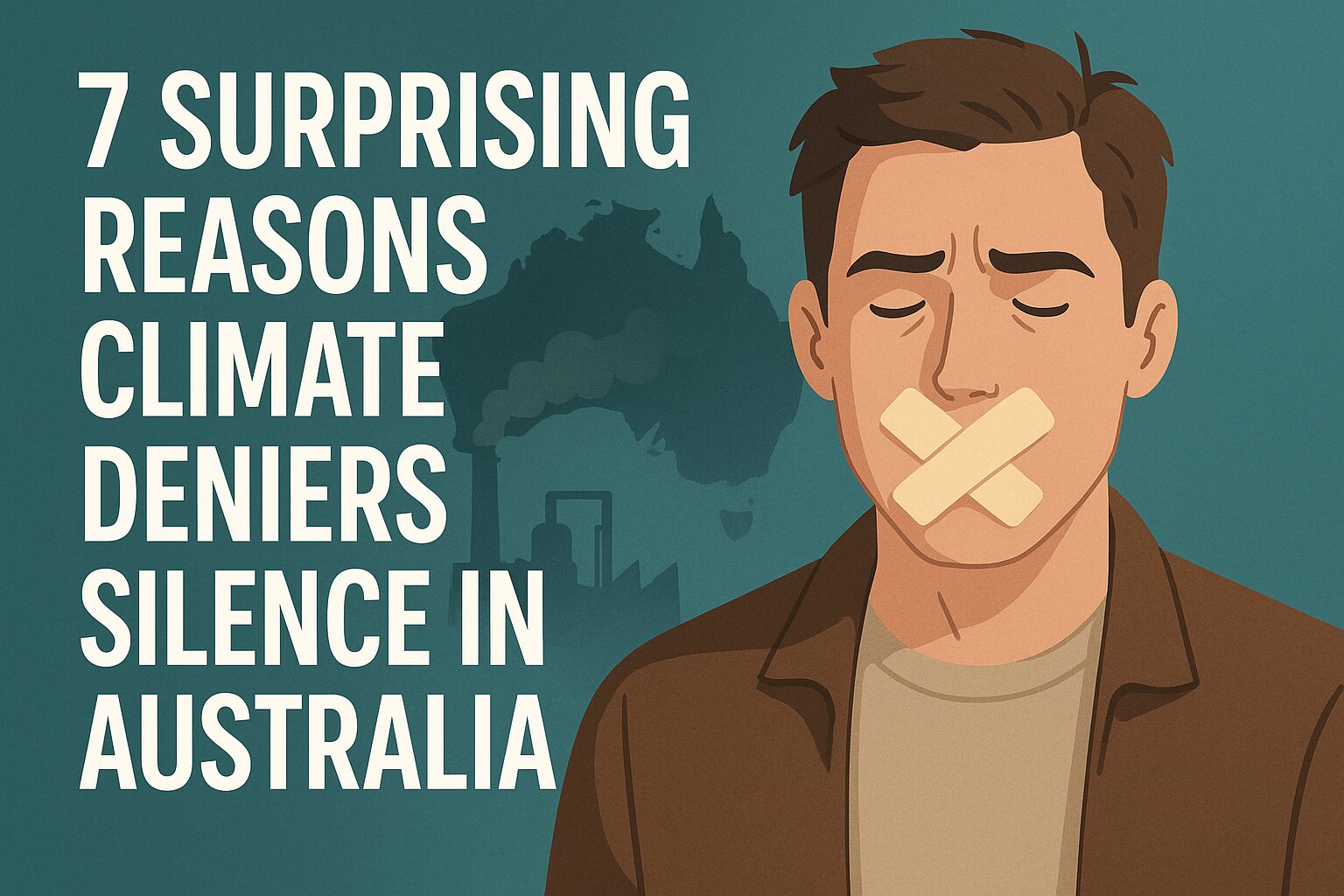Australia’s Climate Deniers Silence Marks a New Era
Climate Deniers Silence in Australia signals a clear retreat from outright denial of science to more insidious challenges to energy policy. Gone are the days of front-page headlines—”there is no climate change”—replaced now by disputes about costs, reliability and local impacts.
- Public Opinion Has Turned
Present-day opinion polls indicate that over 70% of Australians rank climate change as a priority. In 2019–20, when communities personally saw the danger at first hand, after being subjected to massive bushfires, their leaders undermine that danger, imperiling not only city-dwelling voters but also country people who had their homes destroyed, farms devastated, and loved ones lost.
Surveys by the Climate Council reveal increasing support for more ambitious emission targets. As more Australians demand action, strident deniers have fewer ears willing to listen. Their formerly clear messages now fall on doubting ears, causing many to change course or go quiet.
- Corporates and Advertiser Pressure
Big brands have made net-zero commitments. Airlines, banks and supermarket chains now advertise sustainability. Advertisers no longer want their logos associated with climate-skeptic messages.
Media and event organizers report on how sponsors pulled funding for hard-line denier forums. As business budgets move towards green alternatives, speakers who promote flat-out denial struggle to get paid appearances or ad space.
- Regulatory and Legal Risks
New South Wales and Victoria states are making environmental claim laws stronger. Under consumer protection regulations, spreading false information about climate impacts can attract fines.
Legal experts warn to sue or fine individuals and groups who publish “false or misleading” climate information. Celebrities who deny now weigh the risk of lawsuit if they continue public denial, so many are adopting safer language or staying silent.
- Media Fatigue and Changing Coverage
Newsrooms changed as one-off weather disasters arrived to overwhelm front pages. Five-day heatwaves and record floods made space for opinion editorials denying climate science less of an option.
Editors report that pitches from deniers are no longer accepted in favor of pieces on community resilience, renewable breakthroughs and adaptation strategies. With fewer denier op-eds to print, those voices disappear from view—and from mind.
- Political Realignment Within Parties
Australia’s ruling parties pledge net-zero by 2050. Even hard-line candidates now talk of dependability rather than denial. Hard-line MPs who cling to flat-out skepticism risk losing preselection or influence.
In Queensland, a one-time top climate skeptic was dropped as a candidate after local branches demanded an energy plan that was credible. Political strategists note that party strategy now hinges on competitive renewables rather than science denial.
- Rise of Local “Energy Realist” Groups
Former skeptics formed the “Energy Realists of Australia,” retypifying from former denialist groups. They provide targeted messaging on specific projects—wind farms, solar zones—of noise, land use and grid stability.
In town hall meetings in the regions, these groups emphasize local control and community jobs over international climate controversy. By framing energy policy as local, they have a platform short of denying climate science itself.
- International Trends Reinforce the Shift
Globally, the leading U.S. deniers today are not opposing science, but carbon pricing or electric cars. In Europe and Canada, former skeptics join the conversation about grid resilience and energy security.
Australia’s evolution follows this pattern: outright denial drops away, replaced by policy-critical attack. While the world moves towards advanced renewables, hard-line denial looks increasingly out of date—and ineffective.
What This Means for Climate Action
- Reduced Polarization: Conversation changes from “is climate change real?” to “how do we fix it?”
- Policy Momentum: Governments face less organized resistance to aggressive renewable policies.
- New Voices Are Heard: Young people, youth organizations, and scientists drive public conversations now, filling empty space from retreating deniers.
Where deniers fall silent, the conversation is changed. Australia can anticipate higher adoption of clean technologies, improved resilience planning, and more sophisticated public discussion on energy transition.
For continuous reporting, visit our News page.
For global climate information, visit this site.



